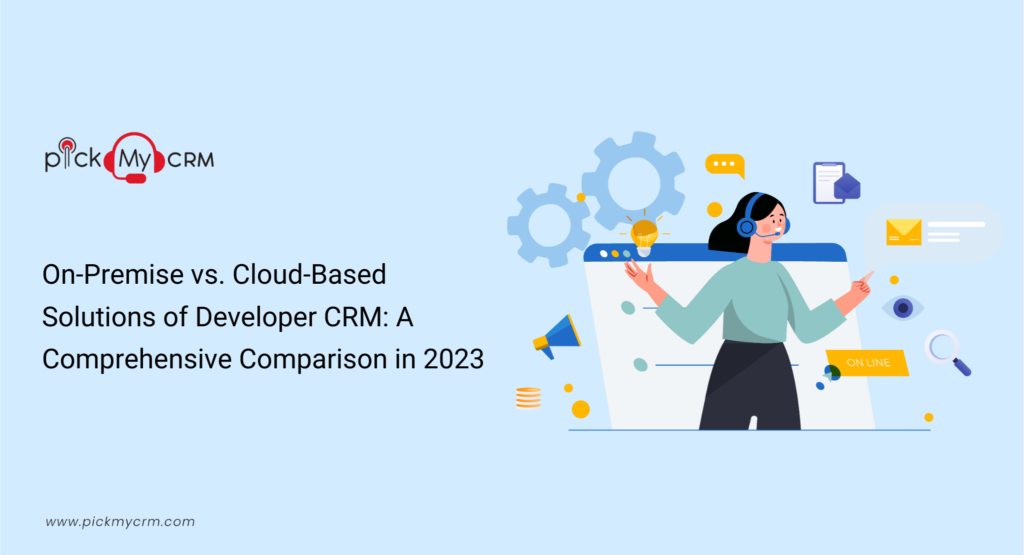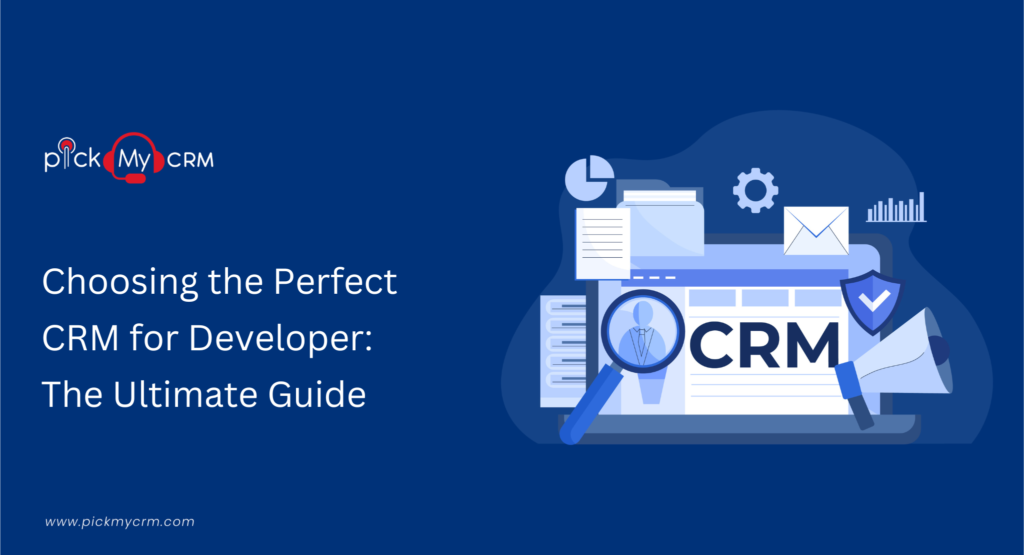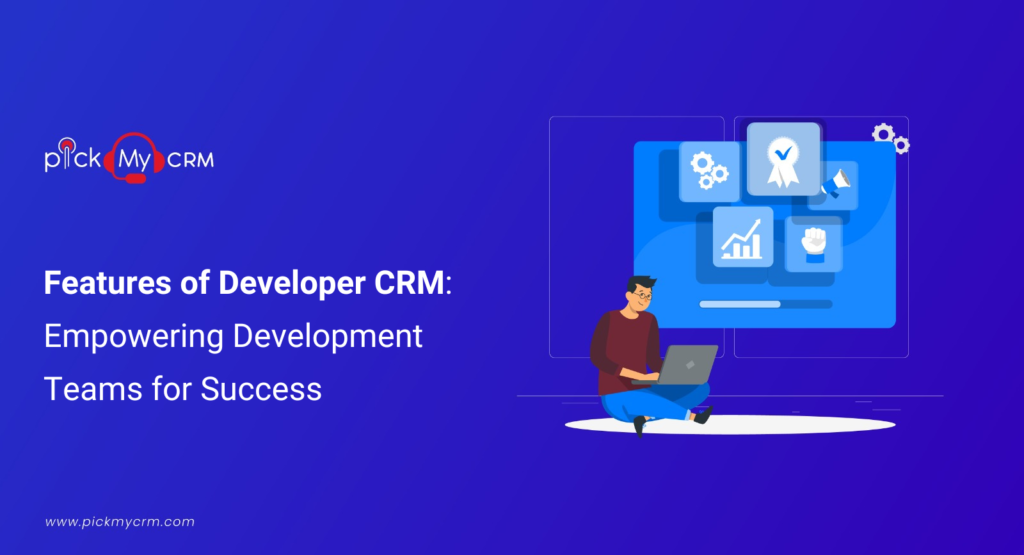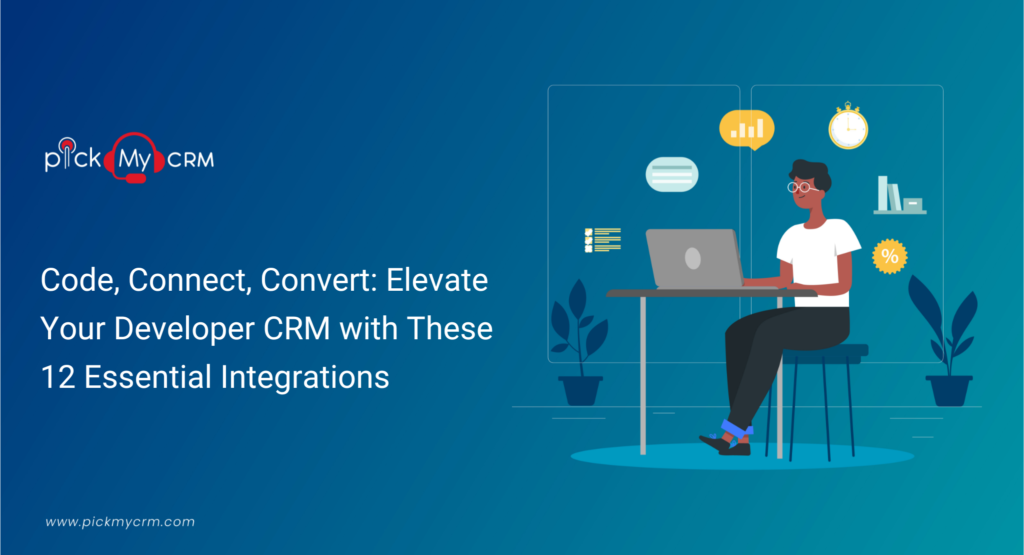On-Premise vs. Cloud-Based Solutions of Developer CRM: A Comprehensive Comparison in 2023
Recent Trends and Statistics in Developer CRM
LSI Keywords: CRM Adoption Trends, Developer CRM Market Insights The latest figures indicate a robust uptick in developer adoption of Customer Relationship Management (CRM) solutions. Projections for 2023 foresee the global CRM market surging to $53.3 billion, boasting a remarkable 14.2% compound annual growth rate (CAGR) since 2021. This expansion finds its impetus in the heightened importance of customer-centric development strategies within the software sector.Comparing Dev CRM Cloud-Based vs. On-Premises Solutions
Choosing the right CRM (Customer Relationship Management) solution is a critical decision for developers, as it directly impacts how efficiently businesses manage and nurture customer relationships. The two primary options available are cloud-based CRM and on-premises CRM. In this comprehensive comparison, we will delve into the details of each option, examining their features, benefits, and considerations to help developers make an informed choice.Why Choose Developer CRM Cloud-Based?
Definition: Cloud-based CRM, often Referred to as Software-as-a-Service (SaaS) CRM, resides on distant servers and is reachable via the Internet.Accessibility and Flexibility
Cloud-based CRM solutions enable users to access the system from any location with an internet connection. It empowers remote teams, fosters collaboration, and facilitates real-time data access.Scalability
Cloud CRM is Designed for seamless scalability. As Businesses grow, they can easily adjust their subscription plans to accommodate a large user base and increased data storage needs without significant hardware investments.Automatic Updates and Maintenance
Cloud providers handle system updates and maintenance, ensuring that CRM remains up-to-date with the latest features, bug fixes, and security patches. It reduces the burden on the IT team and ensures the system's optimal performance.Cost-Efficiency
Cloud-based CRM typically operates on a subscription-based model, eliminating the need for upfront hardware costs. This cost structure is particularly advantageous for small to medium-sized enterprises as it offers predictable and manageable expenses.Enhanced Collaboration
Cloud CRM encourages collaboration among team members, regardless of physical location. Real-time data synchronization allows seamless sharing of customer information, leading to more efficient teamwork and improved customer service.Integration Capabilities
Cloud-based CRM solutions offer Seamless integration with other cloud-based applications and tools. It enables developers to create a unified ecosystem, streamlining data exchange and collaboration among different types of platforms.Data Security and Compliance
Reputable cloud CRM vendors implement robust security measures to protect customer data. These vendors often adhere to industry-leading security standards, ensuring compliance with relevant data privacy regulations.Ease of Implementation
Cloud-based CRM solutions have a quick Implementation process compared to On-Premise options. Developers can set up the CRM faster, enabling businesses to start Using the system sooner and accelerating the return on investment.Continuous Support and Upgrades
Cloud vendors typically provide reliable customer support to assist developers and users with issues or questions. Moreover, they continuously improve the CRM system, ensuring access to the latest features and enhancements.Global Access and Collaboration
Cloud-based CRM enables global access, allowing multiple teams and offices in different locations to collaborate seamlessly. It fosters efficient communication and knowledge sharing Across the Organization.Future-Proofing
Adopting Developer CRM Cloud-Based solutions positions businesses to embrace future technological advancements and innovations in the CRM space, ensuring long-term competitiveness and growth.How to Implementing Cloud-Based Solution of Developer CRM
- Define clear objectives and functionalities needed from the Cloud-Based CRM.
- Choose a reputable and suitable cloud CRM vendor.
- Plan and execute data migration to the cloud CRM and consider integration with other cloud applications.
- Provide user training and onboarding for seamless adoption.
- Configure the CRM to match business processes and workflows.
- Collaborate with the cloud vendor to ensure data security and compliance.
- Stay informed about regular updates and leverage new features to enhance CRM efficiency.
Why Choose Developer CRM On-Premise?
Definition: On-premises CRM refers to traditional software installed and operated on the company's in-house servers and infrastructure. Data Control and Security On-premises CRM provides organizations with Complete control over their data. Sensitive customer information remains within the internal network and firewalls, reducing exposure to external threats. Customization Developers have the Freedom to extensively customize on-premises CRM solutions to fit specific business processes and unique requirements. Such a high degree of customization leads to a tailored user experience and more efficient workflows. No Internet Dependency On-premises CRM functions independently of Internet connectivity. It ensures that critical CRM functionalities remain accessible even during internet outages or disruptions, making it suitable for businesses operating in remote locations or facing intermittent connectivity issues. Integration with Legacy systems For companies with Legacy systems, On-premise CRM offers an advantage by enabling smoother integration. Developers can adapt the CRM to work harmoniously with existing tools, avoiding potential disruptions during the migration process. Predictable Costs With On-Premise CRM, businesses make a one-time upfront investment in hardware and software. This approach provides predictable costs over time, making it easier for companies to budget for CRM expenses. No Vendor Reliance When using On-Premise CRM, organizations are self-reliant and not dependent on third-party vendors for ongoing service and support. They retain control over the CRM system, unaffected by potential vendor changes or disruptions. Existing IT Infrastructure Utilization Businesses Equipped with well-established IT infrastructure and in-house IT expertise can effectively implement and manage On-Premise CRM by making the most of their existing resources. Long-Term Stability On-premises solutions of Developer CRM offer long-term stability, as the organization retains control over the system's life cycle, upgrades, and enhancements. This stability can be beneficial for businesses with long-term planning and deployment goals.How to Implementing On-Premise Solution of Developer CRM
- Assess requirements and gather input from key stakeholders.
- Choose the right On-Premise CRM software that aligns with the organization's needs and budget.
- Ensure the company's servers and infrastructure meet the hardware requirements.
- Carefully strategize and implement data migration to prevent any loss or corruption of data.
- Customize the CRM software to match specific business processes and workflows.
- Provide comprehensive user training to ensure efficient CRM utilization.
- Enforce strong security protocols and maintain routine data backups for enhanced protection.
The Pitfalls and Challenges: A Closer Look
As we navigate the intricate landscape of On-Premise vs. Cloud-Based Solutions for Developer CRM, It's imperative to scrutinize the potential pitfalls and challenges associated with each option. Understanding these drawbacks can help organizations make informed decisions tailored to their needs and circumstances.Challenges with Cloud-Based CRM Solutions
- Data Security Concerns: Ongoing concerns about data security and the need for robust cybersecurity measures.
- Vendor Lock-In: The potential difficulty and cost of Transitioning away from a chosen cloud CRM provider.
- Cost Overruns: The risk of unmonitored usage and unexpected fees accumulating over time.
- Downtime and Reliability: Dependence on Internet connectivity and the impact of outages on productivity.
Drawbacks of On-Premise CRM Solutions
- High Initial Costs: Significant upfront investment in hardware, software, and IT resources.
- Limited Accessibility: Restrictions on remote access to CRM data affecting collaboration.
- Responsibility for Maintenance: Ongoing maintenance and updates divert resources from core business activities.
- Scalability Challenges: Complexity and cost of scaling up on-premise CRM systems.
- Customization Complexity: The intricacy and time required for extensive customization.




